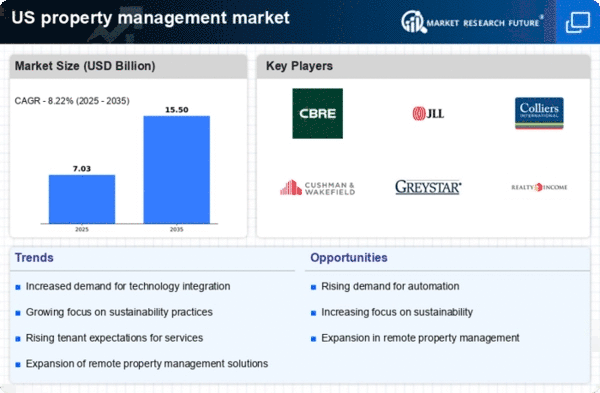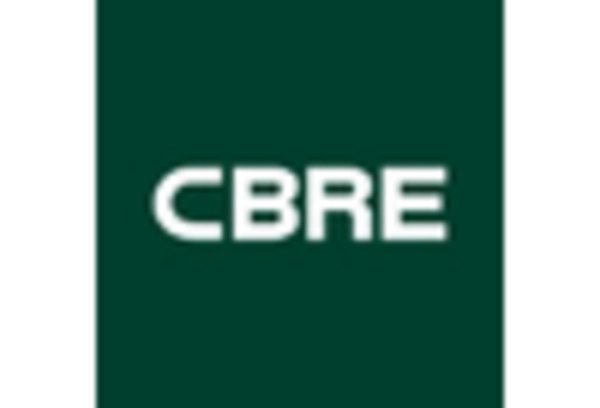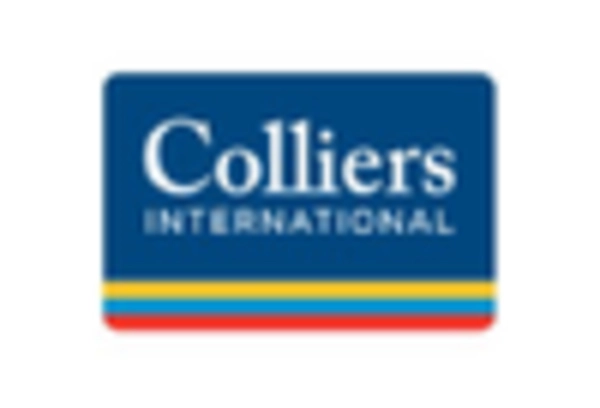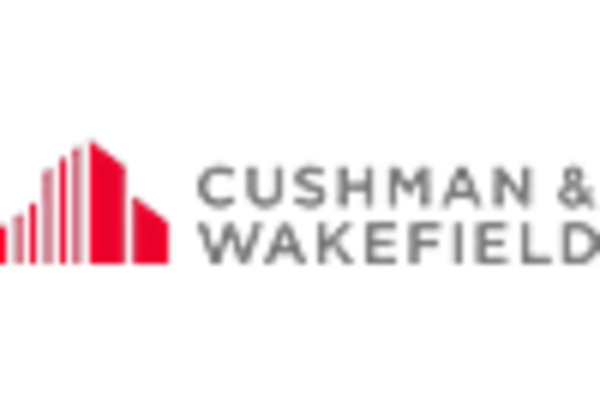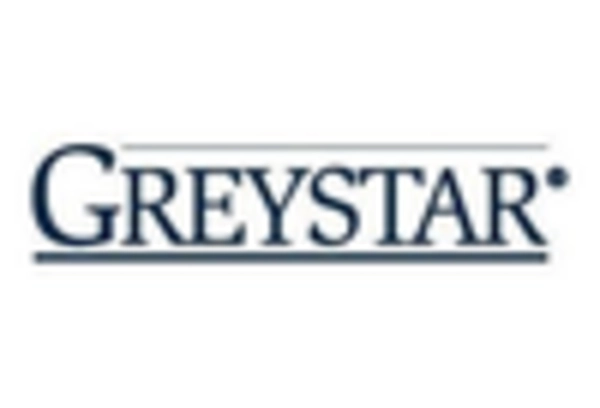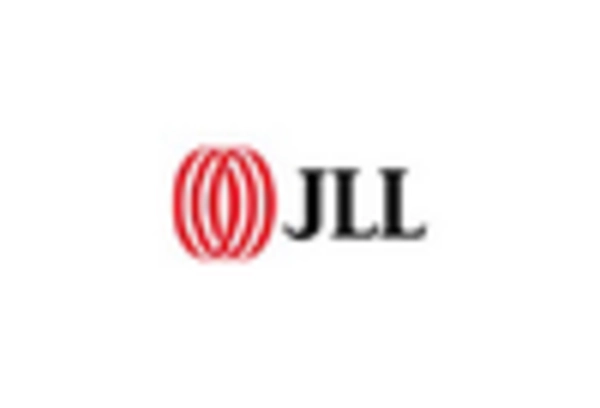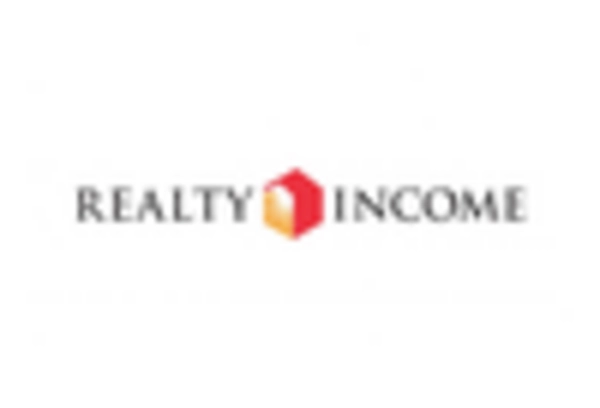Rising Rental Demand
The property management market is currently experiencing a surge in rental demand, driven by various factors including urbanization and demographic shifts. As more individuals and families opt for rental properties over homeownership, property management companies are positioned to capitalize on this trend. According to recent data, rental occupancy rates in major metropolitan areas have reached approximately 95%, indicating a robust demand for managed rental units. This rising demand necessitates efficient property management services to ensure tenant satisfaction and retention. Consequently, property management market players are likely to expand their service offerings to meet the needs of a growing tenant base, thereby enhancing their competitive edge in the industry.
Technological Advancements
Technological advancements are reshaping the property management market, as companies increasingly adopt innovative solutions to streamline operations and enhance tenant experiences. The integration of property management software, mobile applications, and smart home technologies is becoming commonplace. For instance, the use of cloud-based platforms allows property managers to efficiently handle tenant communications, maintenance requests, and financial transactions. Furthermore, data analytics tools enable property management firms to make informed decisions based on market trends and tenant preferences. As technology continues to evolve, it is anticipated that property management market participants will invest heavily in digital transformation initiatives to remain competitive and meet the expectations of tech-savvy tenants.
Evolving Tenant Expectations
Evolving tenant expectations are significantly influencing the property management market, as tenants increasingly seek enhanced living experiences and amenities. Modern renters prioritize convenience, flexibility, and community engagement, prompting property management companies to adapt their services accordingly. Features such as online payment systems, virtual tours, and responsive maintenance services are becoming essential in attracting and retaining tenants. Additionally, the demand for sustainable living options is on the rise, with many tenants favoring properties that incorporate eco-friendly practices. This shift in tenant preferences compels property management firms to innovate and diversify their service offerings, ensuring they meet the evolving needs of their clientele within the property management market.
Regulatory Changes and Compliance
Regulatory changes and compliance requirements are pivotal factors impacting the property management market. As local and state governments implement new housing regulations, property management companies must navigate a complex landscape of legal obligations. These regulations often pertain to tenant rights, safety standards, and fair housing practices. Failure to comply can result in significant financial penalties and reputational damage. Consequently, property management firms are increasingly investing in compliance training and legal resources to ensure adherence to evolving regulations. This focus on compliance not only mitigates risks but also enhances the credibility of property management companies within the market, fostering trust among tenants and property owners alike.
Increased Investment in Real Estate
The property management market is benefiting from a notable increase in investment in real estate, particularly in residential and commercial sectors. Institutional investors and private equity firms are actively seeking opportunities in the property market, leading to a rise in the number of properties requiring professional management. Recent statistics indicate that real estate investment volumes have surged by approximately 20% over the past year, reflecting a strong appetite for property assets. This influx of investment not only enhances the demand for property management services but also encourages the development of new properties, further stimulating growth within the property management market. As a result, property management companies are likely to expand their portfolios to accommodate the growing number of managed properties.


